A majority of Germans want Angela Merkel to remain in the Chancellery. This is a result of the ARD Germany trend. With the work of the coalition government, the citizens, however, are anything other than satisfied.
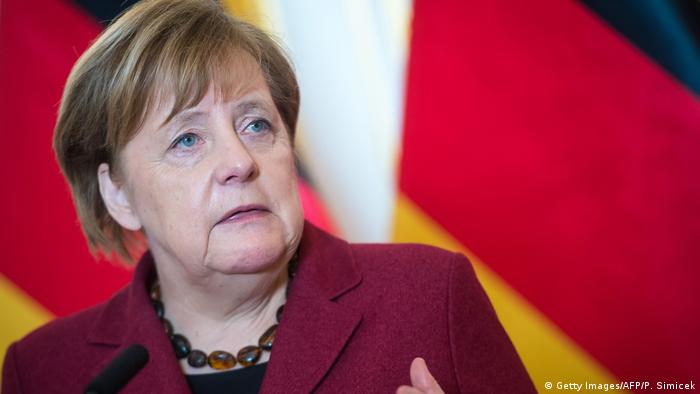
14. March 2018 took the CDU, CSU and SPD in Berlin, the work of the government. A year later, the Germans give the coalition low marks. Only three out of ten by the opinion research Institute infratest dimap surveyed citizens are with the work of the black-red Federal government satisfied. Seven out of ten, however, are less or not at all satisfied.
A differentiated picture of the ARD-Deutschland trend, when evaluating the responses of the respective party supporters. In this case, it shows that the critics in the SPD and in the Opposition. 54 percent of the voters of the CDU and CSU, however, are the work of the government satisfied.
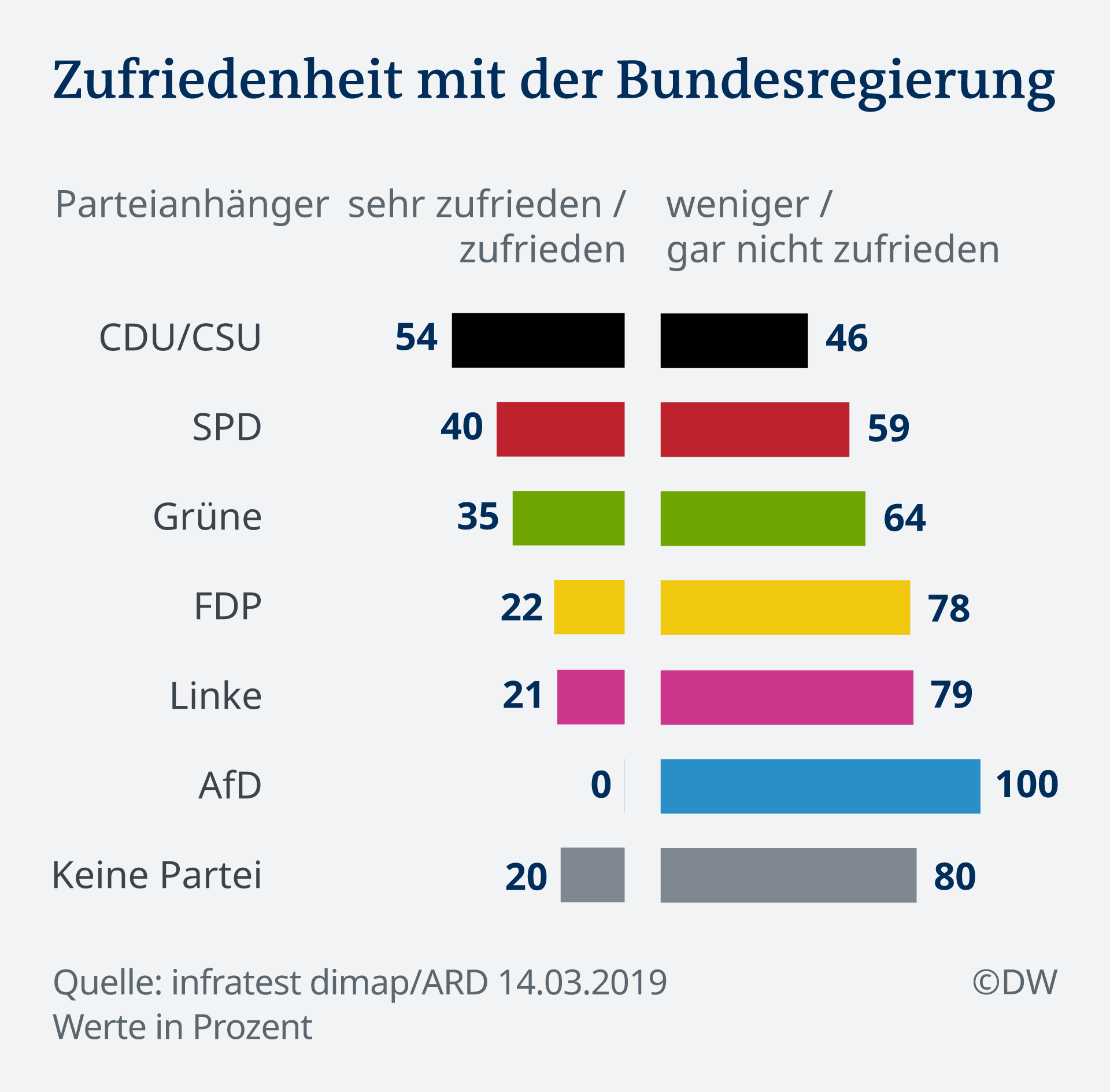
To not have this overwhelmingly critical of the image obviously, due in part to the coalition’s internal conflicts of the last twelve months. From the point of view of a good two-thirds of the German citizens, the Cabinet has not yet found their way into a good work mode. The statement that “The coalition parties are divided and have no common rate” to vote in seven out of ten respondents. Eight out of ten also have the feeling that Chancellor Angela Merkel has lost within the coalition significantly.
Union of sets the tone
Which, notwithstanding the higher satisfaction among the supporters of the Union parties is perhaps explained by the fact that CDU and CSU are considered to be the dominant parties in the government work. This was not pronounced before a year is far not so. After the completion of the coalition negotiations, only 39 percent of German citizens were under the impression of the distribution of responsibilities of view, the Union had prevailed. 31 percent saw at the time, the SPD in the advantage.
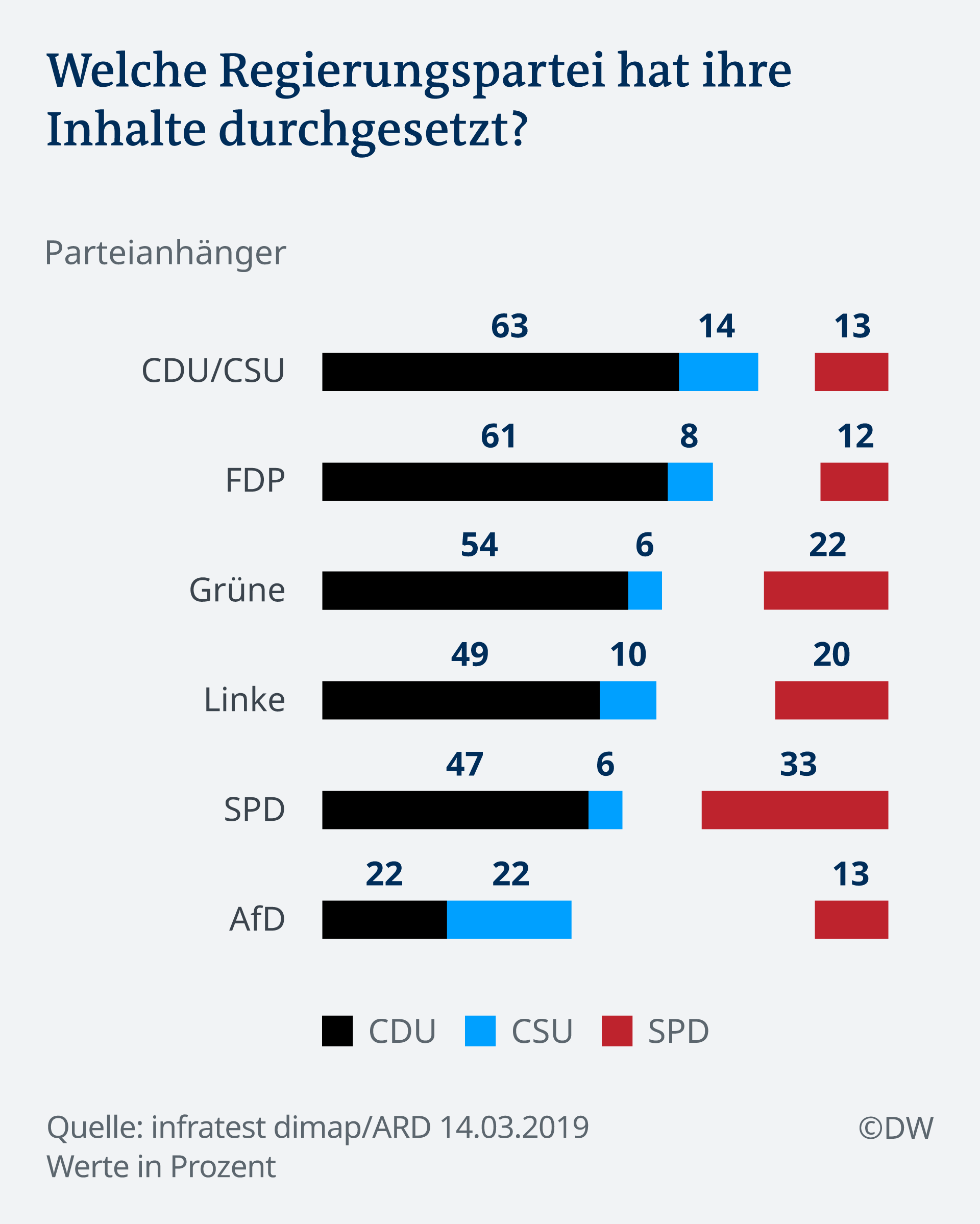
In the meantime, the course of the Berlin Cabinet is dominated, however, rather than Union. In the view of 62 percent of in Germany, trend of the respondents citizens of the CDU and the CSU characterise the previous government’s work. For only 16 per cent of the hand-writing of the social Democrats justified predominates in the Berlin government. It is interesting to note that not only do 77 percent of Union supporters have this opinion, but also 53 per cent of SPD supporters.
Merkel – with smears
The critical point of view on the black-and-red-governmental work goes hand in hand for quite some time even with a less positive assessment of the German Chancellor: In your 14. Chancellor of the fishing year it difficult for Angela Merkel to their previous popularity. Nevertheless, she pushes with her work with every second German citizens in popularity and remains the most popular German politician. A majority of Germans are in favour of Merkel remains until the end of the legislature, Chancellor.
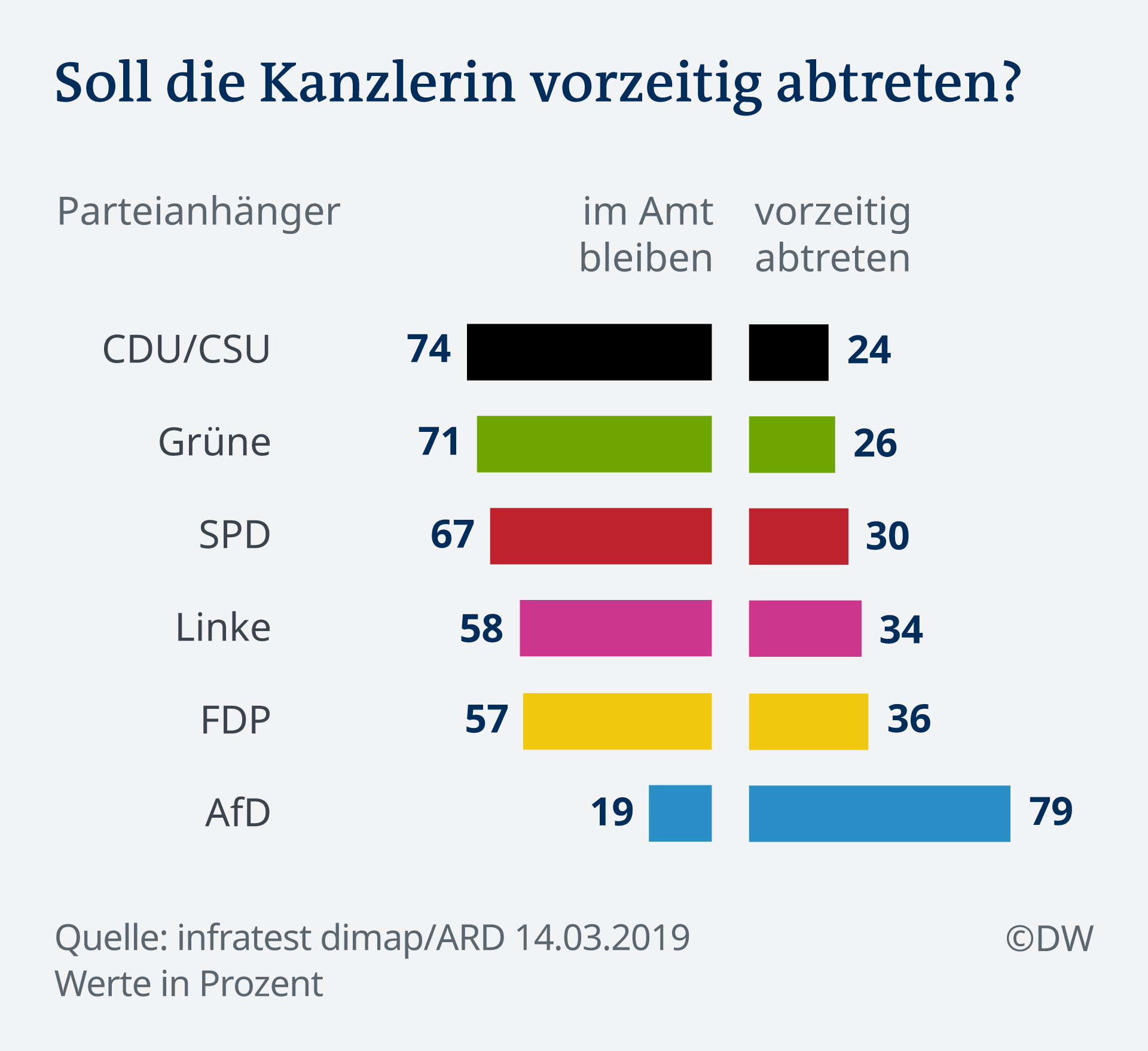
59 percent of the respondents are German citizens are of the opinion that Merkel will remain in office and not in advance for a successor or a successor to place. In the case of the Union supporters with 74 percent. Recently, there had been a discussion about the fact that Merkel could pass before the end of the term in office of the new CDU-Chairman, Annegret Kramp-karrenbauer, in short, AKK,.
AKK falls back
The second most popular politician, foreign Minister Heiko Maas is in the current Germany trend of the SPD. He comes up to 45 percent of the vote. Behind him will follow, each with 37 percent of SPD-the German Finance Minister, Olaf Scholz, and Kramp-Karrenbauer. The successor of Angela Merkel as CDU party leader loses compared to February, with a decline of eight per cent in sympathy.
The current Federal political mood is in March, largely stable compared to the previous month. Would this Sunday’s Bundestag elections, the Union unchanged at a 29 percent would be the strongest force. The minor government partner, the SPD would have 17 percent.
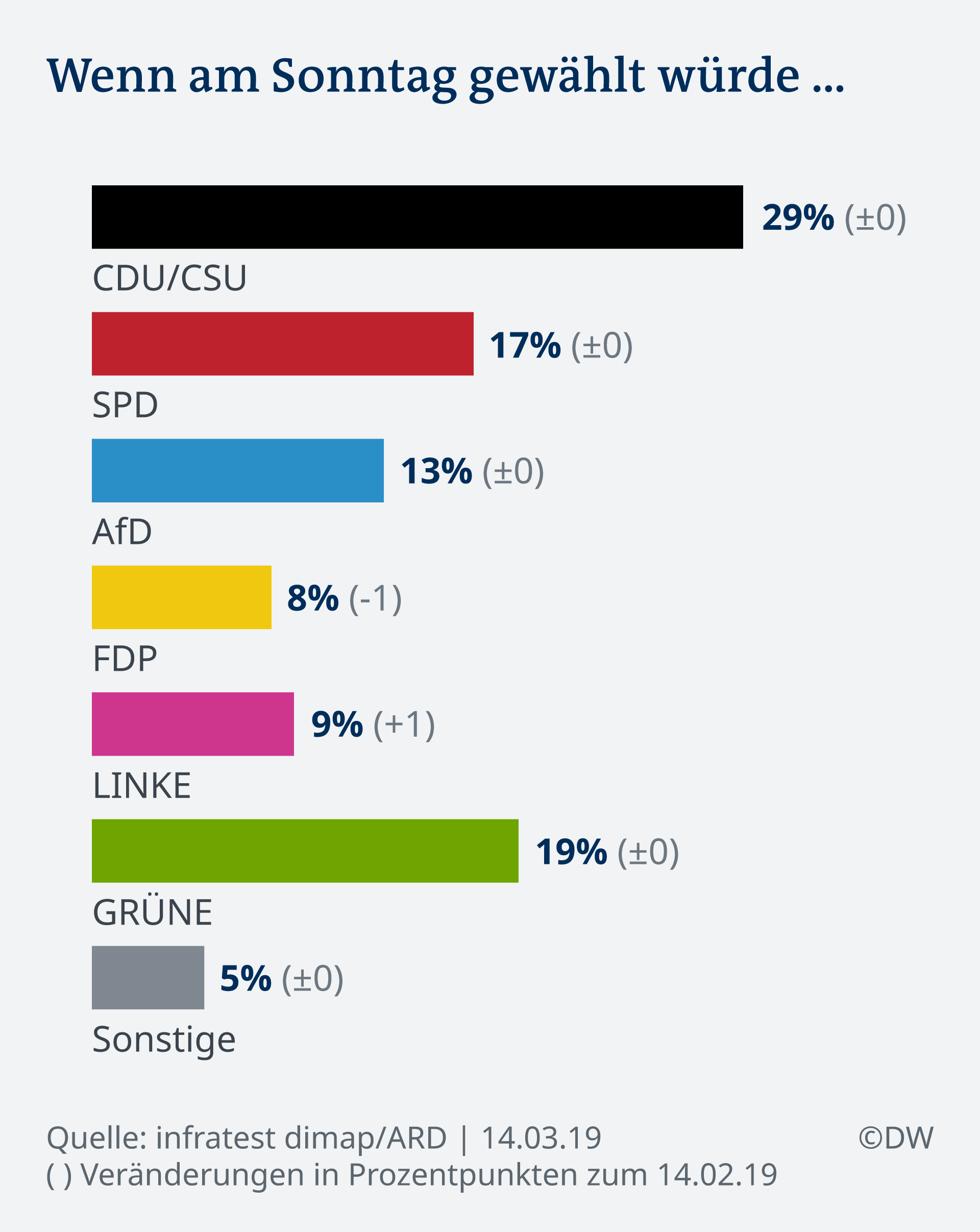
Interesting is the view on a second Sunday of the question, the Infratest dimap, with a view to the European elections on may 26. May. The election would be held next Sunday, would the Union, to 32 per cent and the SPD on the 19 per cent. Both parties would fare better than in a Bundestag election. In the case of the German opposition parties, the opposite would be the case. The Greens would receive a percent less and is 18 percent. The AfD would be eleven percent, and the Left on seven, the FDP six percent.
What to do with the billion?
On Wednesday, Federal Finance Minister, Olaf Scholz, will submit to the Federal Cabinet, the key points for the budget in 2020. A budget that is expected to have no more spaces so large a financial game, as is yet the case. In 2018, the Ministry of Finance has achieved for the fifth Time in a row a budget surplus. Thus, the Federal budget is currently at 12.8 billion euros in the Plus. In Germany, the trend, pollsters asked what should be done with the money.
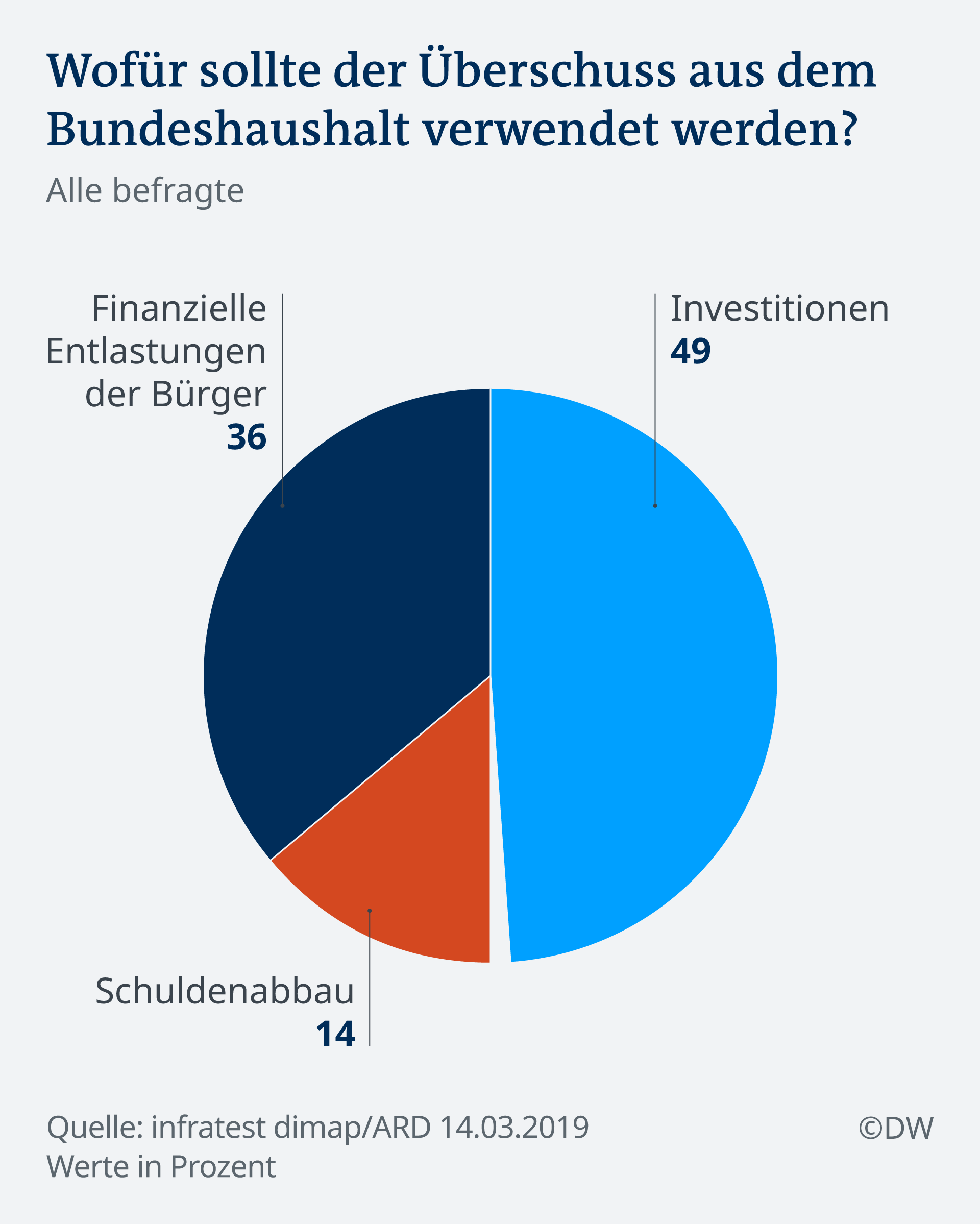
A majority of German citizens would like to see the money increasingly for public investment. One third of the respondents indicated the areas of education and health. Ten percent of the respondents would invest the money in the rehabilitation of roads, bridges and rails, and nine percent in the climate protection.
AfD-voters want their money back
A total of 36 percent of the respondents would leave the Surplus as a financial relief to the citizens. For the reduction of public debt by 14 percent advocate. Within the past one and a half years of support for a citizens ‘ relief is increased significantly. Especially in the ranks of the AfD (61 percent), but also of the Left (46%) find such Considerations very well received.
For investments, in particular citizens with a high school diploma (65 percent) and higher income (59 percent) think. By contrast, easing the financial burden on citizens, especially low-income earners (42%) and eligible voters with formally low-and middle-school diploma (44 percent) above average in a lot of approval.